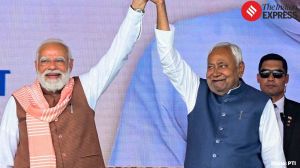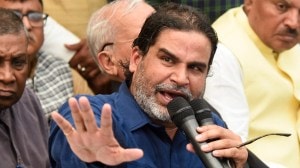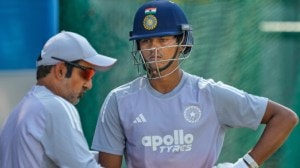P. Vaidyanathan Iyer is The Indian Express’s Managing Editor, and leads the newspaper’s reporting across the country. He writes on India’s political economy, and works closely with reporters exploring investigation in subjects where business and politics intersect. He was earlier the Resident Editor in Mumbai driving Maharashtra’s political and government coverage. He joined the newspaper in April 2008 as its National Business Editor in Delhi, reporting and leading the economy and policy coverage. He has won several accolades including the Ramnath Goenka Excellence in Journalism Award twice, the KC Kulish Award of Merit, and the Prem Bhatia Award for Political Reporting and Analysis. A member of the Pulitzer-winning International Consortium of Investigative Journalists (ICIJ), Vaidyanathan worked on several projects investigating offshore tax havens. He co-authored Panama Papers: The Untold India Story of the Trailblazing Offshore Investigation, published by Penguin. ... Read More
G20 summit: PM Narendra Modi pitches for less secrecy in banking, culling safe havens
Fighting corruption, black money, tax evasion needed for effective governance.
 Modi’s remarks assume significance back home where he had raised the pitch on black money during his election campaign in 2014 promising Rs 15 lakh in the bank accounts of every Indian. (Source: PTI)
Modi’s remarks assume significance back home where he had raised the pitch on black money during his election campaign in 2014 promising Rs 15 lakh in the bank accounts of every Indian. (Source: PTI)
TAKING an extraordinarily tough stance on black money and corruption, Prime Minister Narendra Modi on Monday asked the G20 leaders to demonstrate their commitment by eliminating safe havens and breaking down the web of complex international regulations and excessive banking secrecy.
In a hard-hitting intervention on the final day’s first session on ‘More effective and efficient global economic and financial governance’, Modi said, “G20’s efforts should be for zero tolerance for corruption and black money; zero administration, policy and treaty loopholes; zero barriers and full commitment to action.”
Modi’s remarks assume significance back home where he had raised the pitch on black money during his election campaign in 2014 promising Rs 15 lakh in the bank accounts of every Indian. His government had set up a Special Investigation Team on black money on its very first day in office.
Fighting corruption, black money and tax evasion are central to effective financial governance, the Prime Minister said during his intervention. “We need to track down and unconditionally extradite money launderers and tax offenders and eliminate safe havens for economic offenders,” he said.
The Prime Minister said a stable global economic and financial system was imperative for growth. He, however, warned that capital requirements under the new regulations must not raise the cost of finance such that it hindered inclusive and sustainable growth. Rating agency Fitch has estimated that Indian banks will need $90 billion by 2019 to meet capital adequacy norms under Basel III norms.
Further, mechanisms such as the Financial Stability Board should stick to its core mandate, he said. Modi also emphasised that the long delayed 15th General Review of Quotas must be completed by 2017 annual meetings. “IMF should remain a quota based institution and not depend on borrowed resources,” he said, adding that a regular dialogue was needed between the IMF, Regional Financial Arrangements and Bilateral Swap Arrangements. The Global Financial Safety Net too needed further strengthening, he added.
With pressure mounting on India by most western countries, the US and even China on doing more to tackle climate change, the Prime Minister said India required energy to support its developmental needs. He said, “A balanced mix of nuclear, renewable energy and fossil fuels are at the core of our policy.” The Prime Minister said global trade was “at crossroads” during his intervention on the session on ‘Robust International Trade and Investment’. He said, “The global trading regime must respond to needs and priorities of developing nations. Global value chains must provide them level playing field,” he said. Also, global investment principles shouldn’t be prescriptive with countries getting policy space suit their unique development focus and national circumstances.
During a working lunch which discussed ‘Inclusive and interconnected development’, the Prime Minister said domestic policy and action must get support from international regimes and frameworks to put everyone on the path of development. He emphasised on collaborative action over the next 15 years by building partnerships between countries with surplus capital, superior skills and strong technology and those which need it. He also said there was a need to lower the barriers to flows of human capital, technology and finance.



- 01
- 02
- 03
- 04
- 05





























